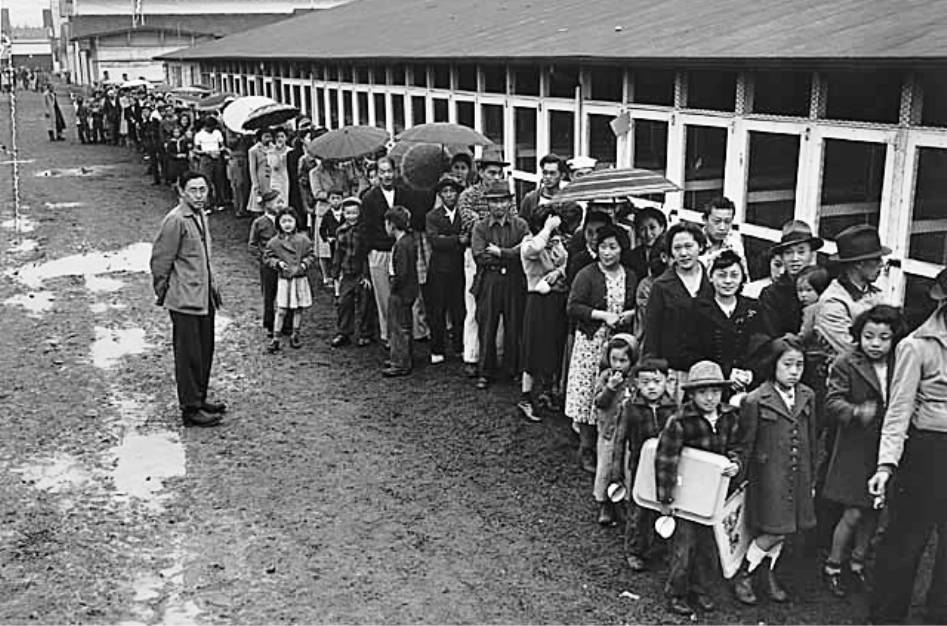While President Trump’s Executive Order imposing a temporary travel ban may be decided by the Supreme Court, one argument that might be used to defend the president’s action may come from a portion of a 1944 decision.

Not long after the Japanese Attack on Pearl Harbor, President Franklin Roosevelt signed Executive Order 9066 authorizing that all individuals of Japanese ancestry, regardless of U.S. citizenship, be removed from their homes and sent to internment camps.
Oakland, California resident and shipyard worker Fred Korematsu defied the order believing it was a violation of his civil rights. The constitutionality of the president’s order was upheld by the Supreme Court in a 6-3 decision.
On behalf of the majority, Justice Hugo Black wrote, in part:
“Korematsu was not excluded from the Military Area because of hostility to him or his race. He was excluded because we are at war with the Japanese Empire, because the properly constituted military authorities feared an invasion of our West Coast and felt constrained to take proper security measures…”
Speaking for the minority, Justice Owen Roberts wrote, in part:
“[This is a] case of convicting a citizen as a punishment for not submitting to imprisonment in a concentration camp, based on his ancestry, and solely because of his ancestry, without evidence or inquiry concerning his loyalty and good disposition towards the United States.”
New York Times Supreme Court reporter Adam Liptak wrote (Jan. 27, 2014), that “Justice Antonin Scalia has ranked Korematsu alongside Dred Scott, the 1857 decision that black slaves were property and not citizens, as among the court’s most shameful blunders. …
“But,” Liptak continues, “Korematsu has never been overruled.
“In his dissent, in the 1944 Korematsu decision, Justice Robert H. Jackson wrote that the Supreme Court ‘for all time has validated the principle of racial discrimination in criminal procedure and of transplanting American citizens.’
“ ‘The principle then lies about like a loaded weapon, ready for the hand of any authority that can bring forward a plausible claim of an urgent need.’ ”
While the Korematsu decision dealt with “alien and non-alien” residents, if Trump’s travel ban is upheld, thousands of individuals who have been vetted and obtained a valid U.S. visa would be denied entry. One argument used by the Supreme Court in 1944 could likely be used again:
“When under conditions of modern warfare our shores are threatened by hostile forces, the power to protect must be commensurate with the threatened danger.”
Although the government could argue that we are at war with terrorists, the second part of that statement, “commensurate with the threatened danger,” could leave open a valid counter argument.
In an e-mail exchange with a reader who pointed to Japanese atrocities as support of Roosevelt’s decision, I responded:
“All due respect, two wrongs don’t make a right. …If we don’t learn the lessons of the past…. you know the rest.”
Respectfully,
Jim Lichtman
The reader e-mailed back:
“Your response is one of the oldest clichés in the history of that idiom: “Two wrongs…”?!!
“Are you suggesting my 1942 interest in the propagation of misrepresentations regarding the Japanese internees has some modern parallels? Not as far as I am aware.”
“I am suggesting,” I wrote in response, “that humanity can only move forward when we learn the lessons of the past.
“I am suggesting that we are much stronger as a country when we unite around the shared values of respect and responsibility.
“I am suggesting that tolerance and acceptance means tolerating other people’s beliefs and accepting individual differences without prejudice.
“I am not suggesting that we accept violence, but rather that we recognize a higher standard in this country than an eye-for-an-eye.
“I am suggesting that compassion is stronger than hate; that anger and violence only begets more anger and violence; that words of fear only create more fear.
“I am suggesting that reason and resoluteness are better tools than ignorance and fear, and that ‘perpetual optimism is a force multiplier,’ as General Colin Powell says.
“I am suggesting that the awesome responsibility of power includes a healthy dose of self-restraint; and that true leadership takes into account and advances the long term interests of all.
“I believe that we not just reconsider Lincoln’s words, ‘With malice toward none; with charity for all,’ but that we act with the spirit that Mr. Lincoln intended in those words when he delivered them during this country’s greatest crisis.
“I believe that when we strive to act out of core ethical values, we can achieve our best, both individually and as a country.”
On signing a bill that provided restitution to Japanese-American civilians in 1988, President Ronald Reagan’s statement read, in part:
“More than 40 years ago, shortly after the bombing of Pearl Harbor, 120,000 persons of Japanese ancestry living in the United States were forcibly removed from their homes and placed in makeshift internment camps. This action was taken without trial, without jury. It was based solely on race, for these 120,000 were Americans of Japanese descent.
“Yes, the Nation was then at war, struggling for its survival, and it’s not for us today to pass judgment upon those who may have made mistakes while engaged in that great struggle. Yet we must recognize that the internment of Japanese-Americans was just that: a mistake.
“…the ideal of liberty and justice for all – that is still the American way.”
In 1998, Fred Korematsu was awarded the Presidential Medal of Freedom.
Comments










